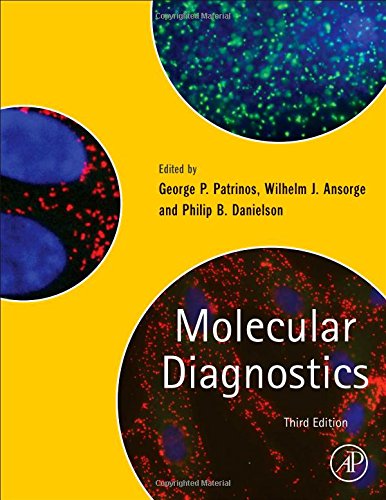

Most ebook files are in PDF format, so you can easily read them using various software such as Foxit Reader or directly on the Google Chrome browser.
Some ebook files are released by publishers in other formats such as .awz, .mobi, .epub, .fb2, etc. You may need to install specific software to read these formats on mobile/PC, such as Calibre.
Please read the tutorial at this link: https://ebookbell.com/faq
We offer FREE conversion to the popular formats you request; however, this may take some time. Therefore, right after payment, please email us, and we will try to provide the service as quickly as possible.
For some exceptional file formats or broken links (if any), please refrain from opening any disputes. Instead, email us first, and we will try to assist within a maximum of 6 hours.
EbookBell Team

4.3
78 reviewsMolecular Diagnostics, Third Edition, focuses on the technologies and applications that professionals need to work in, develop, and manage a clinical diagnostic laboratory. Each chapter contains an expert introduction to each subject that is next to technical details and many applications for molecular genetic testing that can be found in comprehensive reference lists at the end of each chapter.
Contents are divided into three parts, technologies, application of those technologies, and related issues. The first part is dedicated to the battery of the most widely used molecular pathology techniques. New chapters have been added, including the various new technologies involved in next-generation sequencing (mutation detection, gene expression, etc.), mass spectrometry, and protein-specific methodologies.
All revised chapters have been completely updated, to include not only technology innovations, but also novel diagnostic applications. As with previous editions, each of the chapters in this section includes a brief description of the technique followed by examples from the area of expertise from the selected contributor.
The second part of the book attempts to integrate previously analyzed technologies into the different aspects of molecular diagnostics, such as identification of genetically modified organisms, stem cells, pharmacogenomics, modern forensic science, molecular microbiology, and genetic diagnosis. Part three focuses on various everyday issues in a diagnostic laboratory, from genetic counseling and related ethical and psychological issues, to safety and quality management.